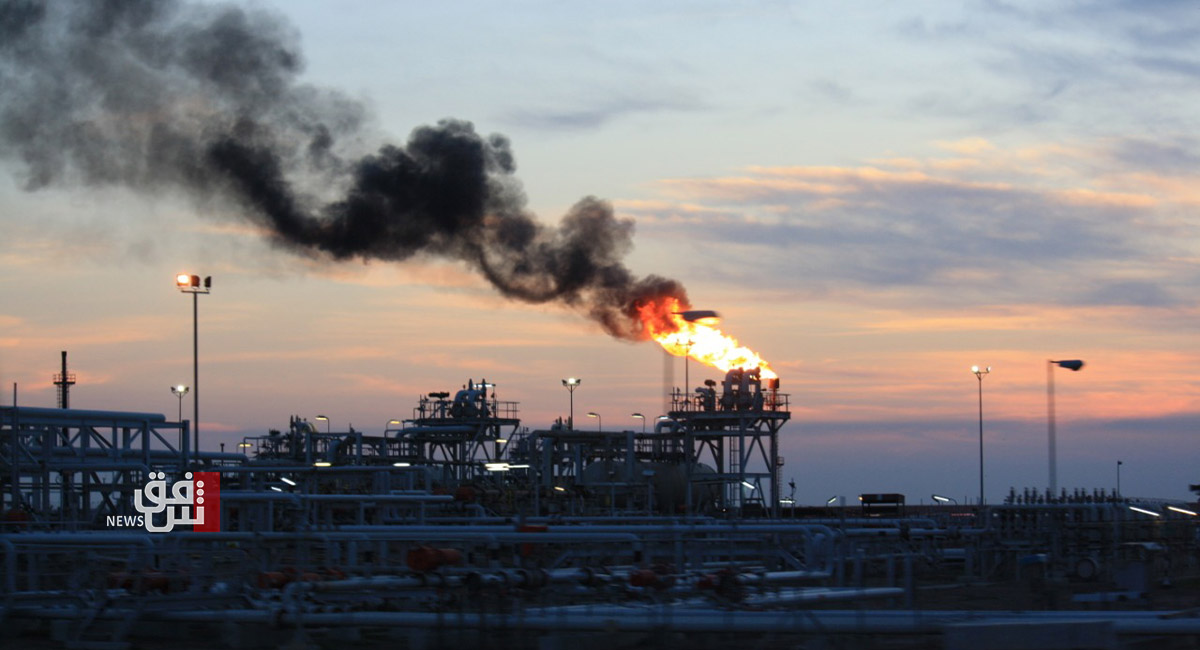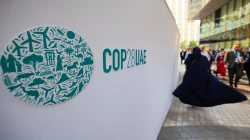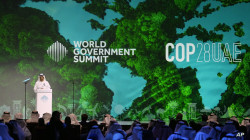Amwaj: after ‘green talk’ at COP28, where should Iraq begin?

Iraq highlighted its game plan to achieve a clean energy transition and reduce its carbon footprint at the recent 28th United Nations Conference on Climate Change (COP28). The objectives include reaching zero gas flaring by 2028; generating 12 gigawatts (GW) of power from renewable sources in the next few years; installing systems to capture and detect methane emissions at oil and gas facilities; and establishing a green bank for sustainable development, based on data shared during the climate conference.
Now that the green talk at COP28 is over, Iraq needs to take immediate action to design a legal framework that can facilitate the transformation of its energy landscape. Currently, the Iraqi government is still drafting a law on renewable energy that experts say should have been passed years ago.
At the same time—and since it has opposed plans to phase out fossil fuels—OPEC’s second-biggest oil producer must demonstrate how it will balance its plans to reduce emissions while increasing crude production and continuing its use of high-sulfur liquid fuels in its power sector.
Moving fast on legal framework
At an energy session held at COP28, Iraq’s oil ministry announced a plan to cut 34.2M tons per year of carbon dioxide (CO2) emissions associated with gas flaring by 2028. To this end, the country has at least six projects, including key initiatives implemented by the Basrah Gas Company (BGC)—a joint venture between Iraq’s South Gas Company, Shell, and Mitsubishi Corporation. Some progress has been achieved in recent years, though Iraq flares 1,200 million standard cubic feet per day (MMcf/d) of gas while importing 1,000 MMcf/d from neighboring Iran.
In 2021, the oil ministry announced a 3B USD investment plan through 2025 for BGC to increase gas production by 40%. Iraqi officials have said that the aim is to reach 1,400 MMcf/d of production from associated gas collected from West Qurna 1, Zubair, and Rumaila. This would lead to lower emissions.
To take things a step further, the oil ministry in October unveiled plans to fund a “pilot” gas capture project of 12 MMcf/d at the East Baghdad oil field, using carbon credits as part of its efforts to lower emissions. In an interview earlier this month, Abdulbaqi Alsalait—an adviser to Iraq's oil ministry who is also leading the decarbonization efforts—said the captured gas will be used for power generation. Alsalait added that Canada, Norway and two local companies are bidding for the project. While these initiatives are important, they need to be safeguarded. That cannot be done without a modern regulatory framework that can enable and accelerate efforts to lower emissions.
Unlike some of its neighbors, such as Jordan, Iraq lacks a renewable energy and energy efficiency law that can play a pivotal role in fostering the development, integration, and utilization of clean energy sources. The country needs to move fast on legislation that encourages investment in renewable energy, establishes incentives for the adoption of sustainable practices, and contributes to the establishment of clear standards for environmental protection and emissions reduction.
Beside the absence of a renewable energy law, Iraq has yet to draft and pass legislation to regulate carbon emissions from oil and gas fields, particularly in the southern province of Basra. Investigative reports have revealed how some foreign companies operating at giant oil fields have been blamed for cases of cancer in communities living near facilities that flare associated gas instead of capturing it. In this vein, a Human Rights Watch report published earlier this year urged the Iraqi government to “enact and enforce tight regulations” to limit gas flaring.
Iraq additionally lacks a law to regulate nitrogen and sulfur oxides (NOx and SOx) emissions from large and aging oil-fired power plants that burn high-sulfur crude oil and heavy fuel oil. Iraq has been unable to achieve full generation capacity to meet demand due to several reasons, including the ageing of its plants and efficiency deterioration.
Having such laws in place would ensure that emissions-related regulations are not flouted, as they also protect the country’s population and environment which are both facing high risks due to pollution and climate change.
Amid green talk, oil ambitions remain
While Iraq is taking small steps towards an energy transition, it remains incapable of phasing out fossil fuels. Moreover, its opposition to such proposals was loud and clear at COP28. "We agree to phase out emissions, phase down emissions, not the fuel," Alsalait has previously said, noting that oil and gas revenues fund more than 90% of the Iraqi government’s annual budget—despite the attempts at diversification.
In Nov. 2023, crude oil production stood at 4.18M barrels per day (bpd) while overall crude exports were at 3.43M bpd. Most cargoes head to China and India, data from Kpler show. Iraq raked in about 8.512B USD last month from its overall crude oil exports, based on a statement published by the Iraqi oil ministry.
Despite various technical challenges, Iraq has been reiterating its plans to increase oil production capacity to about 6-7M bpd in the next few years, from its current maximum capacity of about 5M bpd. Such a boost would require the involvement of international oil companies.
Just last month, Russia’s Lukoil announced that it had inked a supplementary agreement with Iraq’s Basra Oil Company to extend a contract for the West Qurna 2 field in southern Iraq by another decade, through 2045. This is envisioned to eventually double the field’s output with “plateau level” reaching 800,000 bpd. Lukoil began commercial production in 2014, and says West Qurna 2 now delivers 9% of Iraq’s total output.
Meanwhile, Iraq has been announcing licensing rounds for new oil and gas projects throughout the country, in another sign that the economy will remain driven by hydrocarbons for years to come.
The balance
Iraq welcomed the consensus on the need for change at COP28, but expressed reservations over “one of the clauses” of the final agreement that calls for “transitioning away from fossil fuels in energy systems in a just, orderly, and equitable manner.”
Iraq’s opposition to the immediate phasing out of fossil fuels is rooted in its heavy dependence on hydrocarbons. While the country acknowledges the impact of climate change on its population and environment, oil ministry advisor for climate change Abdul Baqi Khalaf told COP28 that Iraq’s climate change policy “is based on just transition and prevention of energy poverty.” Iraq’s push against phasing out fossil fuels is also part of OPEC’s stance on the need for the world to focus on cutting emissions and not choosing energy sources.
Iraq should not be expected to move away from its vast natural resources, including giant gas fields that remain untapped. But to show its seriousness about the energy transition, the country needs to take the first major step in that direction—and that is equipping itself with the necessary, modern legal frameworks.
(Amwaj)





